PVPA students lobbying for bill that would require at least one mental health expert per 250 pupils
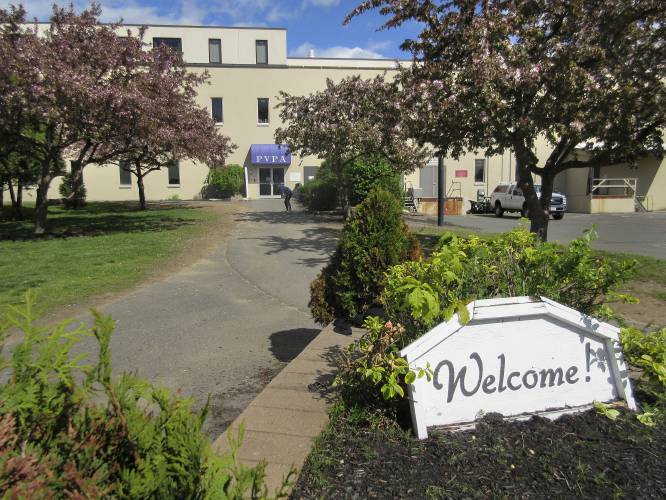
The Pioneer Valley Performing Arts Charter Public School in South Hadley. FILE PHOTO
| Published: 12-19-2023 5:07 PM |
SOUTH HADLEY — As youth across western Massachusetts struggle with increasing mental health issues, three teenagers at the Pioneer Valley Performing Arts Charter Public School (PVPA) are working to increase the number of mental health personnel in schools.
“It’s just become apparent that students are trying less, resorting to drug abuse and many other problems,” said Mason Pelletier-Biggs, one of the students involved in the project.
Pelletier-Biggs, along with Heavenly Mendoza and another classmate, are completing the project as part of their 11th grade civic action class.
“We’ve all had problems with [mental health] before, and we were all wanting to make some sort of change to make things better,” Pelletier-Biggs said.
According to a 2022 report by the Public Health Institute of Western Massachusetts, 45% of western Massachusetts youths ages 14-24 reported “feeling so sad or hopeless every day for two weeks or more in a row that they stopped doing usual activities.”
Meanwhile, in 2023, 17.1% of Hampshire County youths reported engaging in deliberate self-harm, while 15.5% say they have seriously considered suicide, according to data collected by the Collaborative for Educational Services and the SPIFFY Coalition in their biennial Prevention Needs Assessment Survey.
For the three PVPA students, the mental health crisis is personal.
Mendoza said she was diagnosed with heavy anxiety last year.
Article continues after...
Yesterday's Most Read Articles
 A Waterfront revival: Two years after buying closed tavern, Holyoke couple set to open new event venue
A Waterfront revival: Two years after buying closed tavern, Holyoke couple set to open new event venue
 Services being held Thursday for Greenfield homicide victim
Services being held Thursday for Greenfield homicide victim
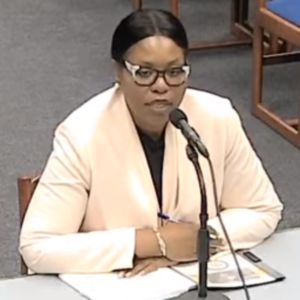 Island superintendent picked to lead Amherst-Pelham region schools
Island superintendent picked to lead Amherst-Pelham region schools
 Area property deed transfers, May 2
Area property deed transfers, May 2
 Granby Bow and Gun Club says stray bullets that hit homes in Belchertown did not come from its range
Granby Bow and Gun Club says stray bullets that hit homes in Belchertown did not come from its range
 3-unit, 10-bed house in backyard called too much for Amherst historic district
3-unit, 10-bed house in backyard called too much for Amherst historic district
“Due to being out of school so much … I started failing, and now I’m a year behind, which caused me a lot of stress and anxiety,” Mendoza said. “I’ve had a lot of thoughts of just giving up and being hopeless for a while.”
Pelletier-Biggs said he has been diagnosed with anxiety and depression, which runs in his family.
“We thought a long time about how we wanted to cause some change, and so we ended up deciding on trying to get more personnel in schools,” said Pelletier-Biggs.
“The assignment was to get some systems-impact, change something with the government somehow,” he said, and gave an example. “You can inspire change by volunteering at a homeless shelter, but you’re not changing anything by doing that, so the assignment was to actually have some systems impact.”
The systemwide change sought by the students is to get at least one adjustment counselor, social worker and psychologist in every school, not just the district. And if not every school, the students hope to get one personnel for every 250 students in the district, following the recommended ratio by the American School Counselor Association.
“We’re focusing right now on Bill S.346,” Pelletier-Biggs said.
The bill — currently referred to the Committee on Education, which would have to approve the bill in order for the Senate to vote on it — would require that the Department of Elementary and Secondary Education (DESE) provide schools with mental health professionals at a ratio of at least one per every 250 students.
It would require, at minimum, one school mental health professional at each elementary and secondary school across the state to provide services, offer training, and provide resources to the school.
“We’re mostly lobbying senators trying to get this bill and others put forth so that we can get more professionals in schools,” Pelletier-Biggs said.
Mendoza added that the group is trying to spread information within their schools and trying to gain support through posting on social media.
“We plan to continue doing this probably even after this class is over, just trying to change something and gain awareness for it,” Pelletier-Biggs said.
Maddie Fabian can be reached at mfabian@gazettenet.com.

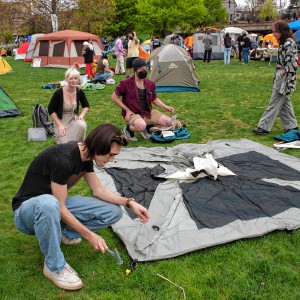 Pro-Palestinian encampment disperses at UMass, but protests continue
Pro-Palestinian encampment disperses at UMass, but protests continue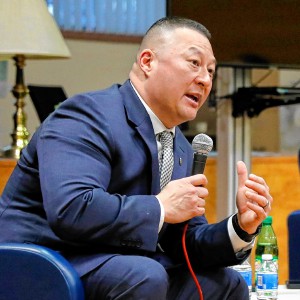 Amherst council confirms Gabriel Ting as police chief
Amherst council confirms Gabriel Ting as police chief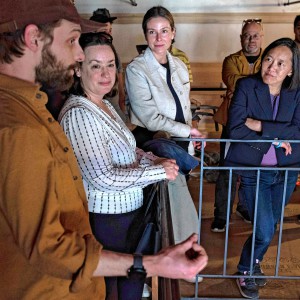 Music key to Northampton’s downtown revival: State’s top economic development leader tours city
Music key to Northampton’s downtown revival: State’s top economic development leader tours city 
